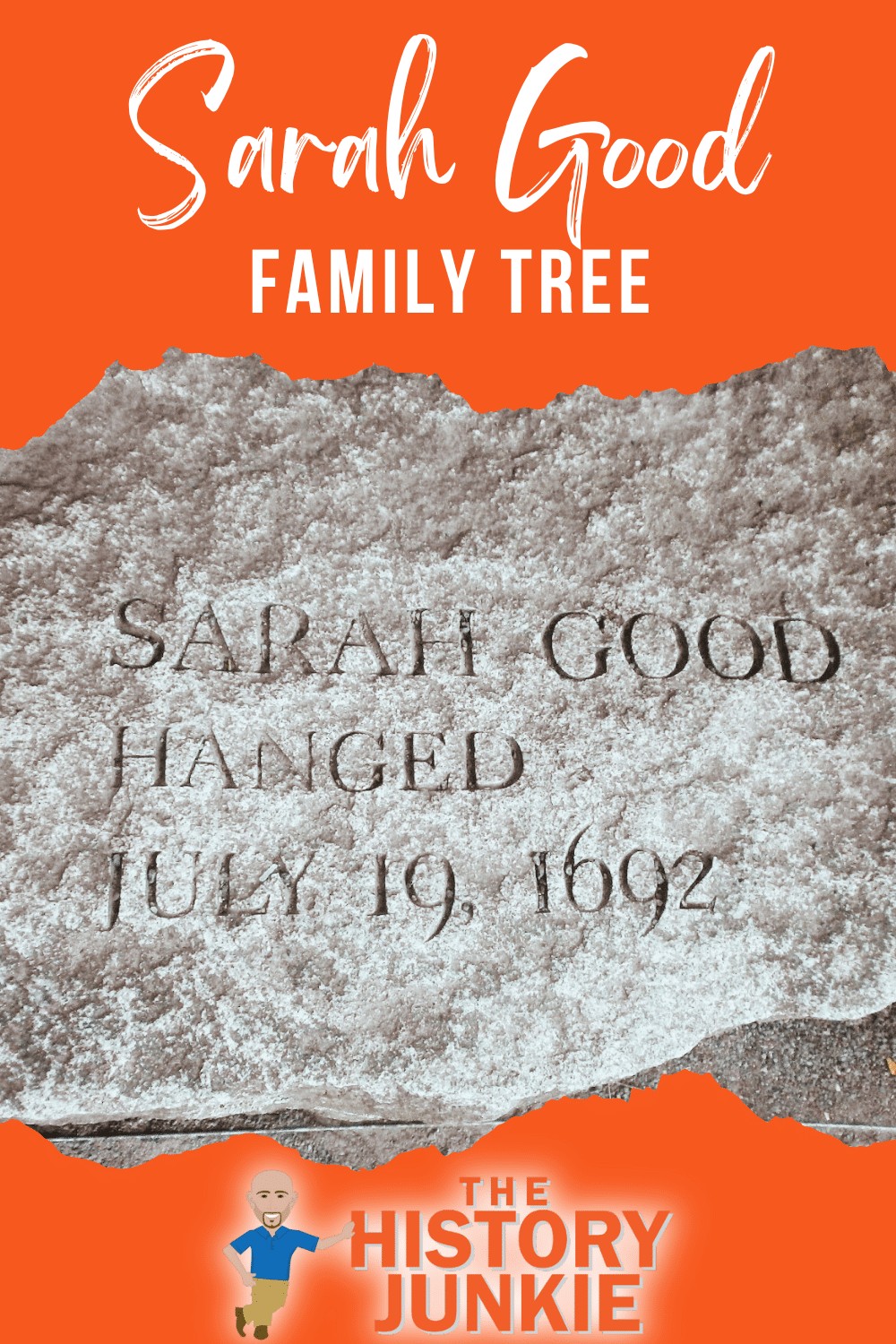Sarah Good was one of the first three women to be accused of witchcraft in the Salem witch trials in 1692. She was a poor and homeless woman who was accused of cursing and afflicting several young girls.

Also Read: List of People Involved in the Salem Witch Trials
Good was born in Wenham, Massachusetts Bay Colony, in 1653. She was the daughter of John Solart and Elizabeth Woodward. She had 7 siblings.
Sarah married Daniel Poole in 1682, but he died in debt in 1686. She then married William Good, but they were also poor and had to rent rooms in other people's houses. They had two children together, Dorothy and Mercy.
Sarah Good was accused of witchcraft by several young women who were suffering from fits and convulsions. The girls claimed that Good's specter had visited them and tormented them. Good was arrested and brought to trial.
At her trial, Good denied all of the charges against her. However, she was found guilty of witchcraft and sentenced to death.
When she was found guilty by the judges, including Nicholas Noyes, according to legend she yelled to him: "I'm no more a witch than you are a wizard, and if you take away my life God will give you blood to drink", although this sentence does not appear in any of contemporary reports of the execution.
There is also a legend that, twenty-five years later, Noyes died from choking on his own blood.
She was hanged on July 19, 1692, at Gallows Hill in Salem.
Jump to:
Family Overview
Sarah Good is known for her fate, but around the town of Salem, she was known as a beggar who was mired in debt due to her first husband.
It is unclear how she became such a lowly citizen. Her father did well as an innkeeper and her siblings all seemed to live somewhat successful lives.
During her trial, there is no record of any of her siblings aiding her and her husband was not helpful.
She had two children with one dying in prison with her. The other survived and was given reparations when she was older for the wrong done to her mother.
Family Tree Chart
Parents:
Jean Solart (1626 - 1672) - He was originally from Italy and migrated to Massachusetts as a Huguenot. He would become a successful innkeeper during his life at the colony.
Elizabeth Woodward (1626 - 1678) - She married Jean and had many children. After his death, she married again. Her maiden name is unknown and Woodward is the surname of her second husband.
Spouse:
Daniel Poole (1650 - 1686) - He migrated from England as an indentured servant. While a servant he died and left his family in debt. This would make life hard for his wife.
William Good (1650 - after 1692) - After marrying Sarah the couple ended up in debt due to her late first husband. By the time of the Salem Witch Trials Sarah was a beggar.
Children:
Dorothy Good (1687 - after 1710) - She was only five years old when she was arrested for witchcraft. The judges said that when she put her eyes on the afflicted they were tormented. Thankfully she was not executed.
Mercy Good (1692) - she died as an infant while in jail with her mother awaiting her mother's execution.
Siblings:
Mary Solart (1644 - 1682) - She married but it is unclear how many children she had or the location she died.
Elizabeth Solart (1652 - 1734) - She married and had at least one child. She lived long enough to witness her sister be executed for witchcraft.
John Solart (1656 - 1679) - He died at a young age. His wife is a source of confusion. It is unclear if he had any children.
Martha Solart (1689 - Unknown) - She had four children but her death date is unknown.
Abigail Solart (1664 - 1751) - She married and had two children. Her maiden surname is sometimes spelled differently than other Solarts.
Bethia Solart (1666 - 1729) - She married John Herrick and had at least one child. She died in Massachusetts Bay Colony.
Abiah Woodward (1674 - 1720) - She was the first half-sibling of Sarah. She married and had many children. She had probably moved to Connecticut Colony prior to the Salem Witch Trials.
Mehetabel Woodward (1677 - 1739) - She also married into the Herrick family. She had at least two children and they would produce descendants.
